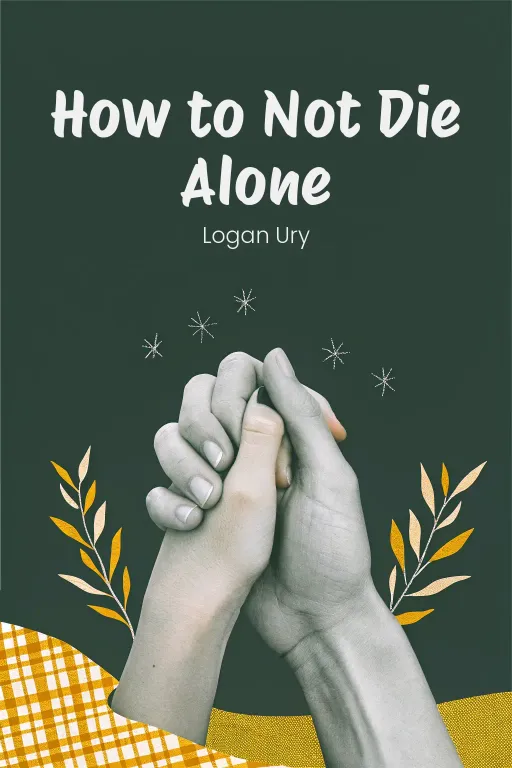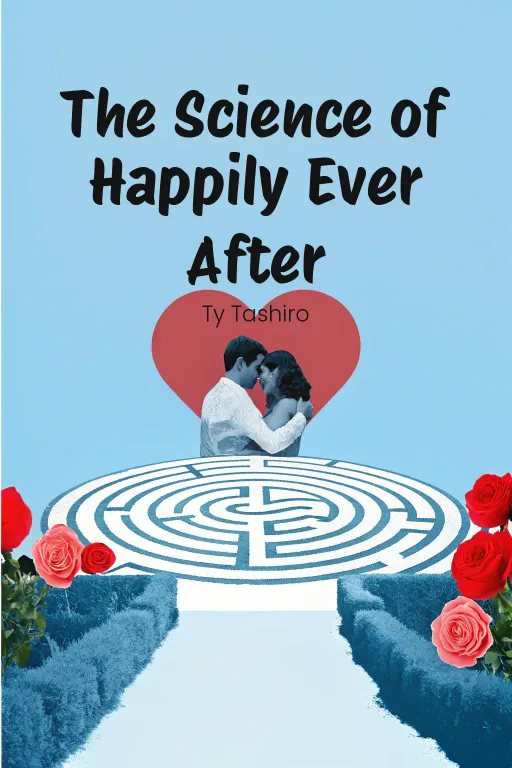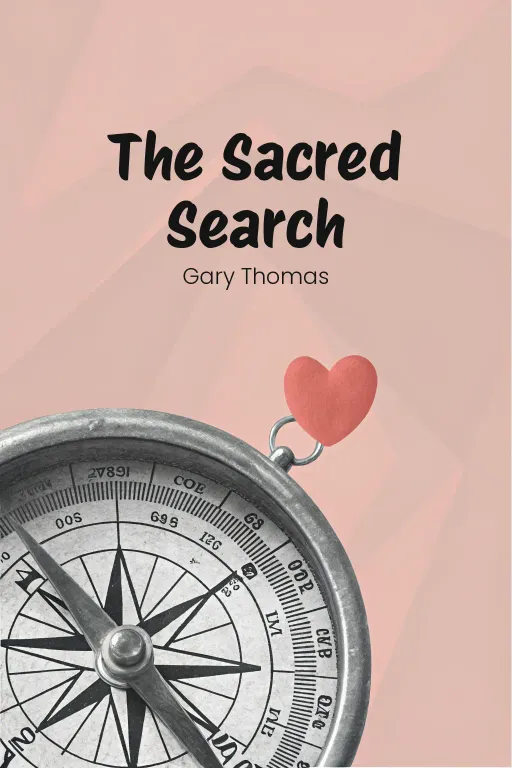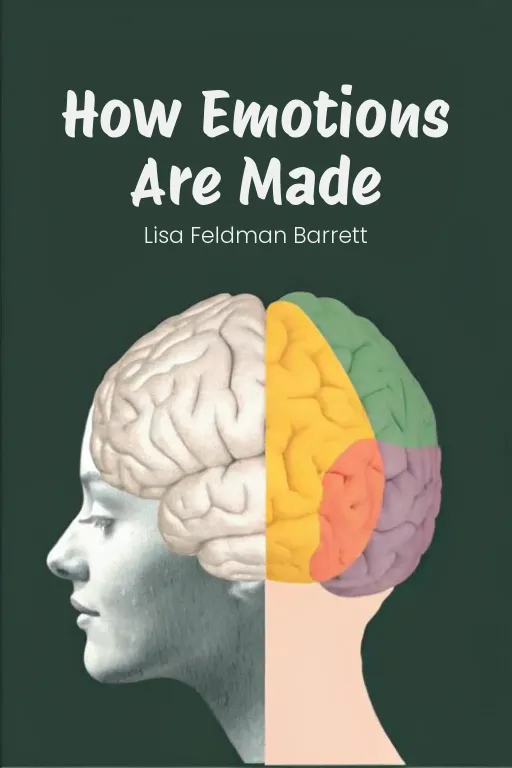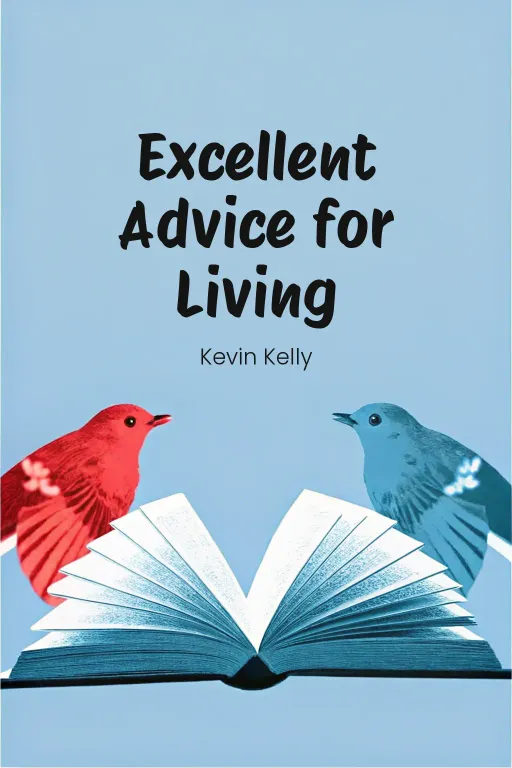
Marriage That Clicks: Friendship, Fights & Forever
Podcast by The Mindful Minute with Autumn and Rachel
A Practical Guide from the Country’s Foremost Relationship Expert
Introduction
Part 1
Autumn: Hey everyone, welcome back! Today, we're tackling a topic near and dear to my heart: What “really” makes a marriage tick? Whether you're newlyweds or seasoned veterans, this episode is for you. Rachel: Because let's be honest, relationships? They're a mixed bag. You start with fireworks, and then… sometimes it feels like you're slogging through mud. Or worse, like you’re in a constant tug-of-war. Why is that? Autumn: Exactly! That's where John Gottman's Seven Principles for Making Marriage Work comes in. And it's not your typical touchy-feely relationship guide. This is research-backed, based on decades of observing real couples in his famous "Love Lab." It's about giving you concrete tools to really understand each other, deepen your connection, and handle conflict in a healthy way. Rachel: So, this guy watched everything, from morning coffee small talk to screaming matches, and turned it into actual science. The big takeaway? It’s not just about damage control during fights. It’s about building a rock-solid friendship, figuring out how to truly share your life, and building rituals that keep the love strong over time. Autumn: Which is why we’re focusing on three major principles from the book. First, we'll explore how friendship is really the bedrock of any successful marriage. It's what makes the spark last—not just the romance, but truly knowing your partner inside and out. Rachel: Their favorite takeout order, yeah, but also their deepest aspirations and what keeps them up at night, right? Autumn: Totally! Next, we’ll look at how conflict can actually be a “good” thing, a way to get closer, when you manage it properly. Because, let's be real, no marriage is argument-free. Rachel: But nobody teaches you how to argue constructively. News flash: Slamming doors doesn’t count. Autumn: Finally, we’ll discuss how shared rituals, traditions, and even dreams form the foundation that keeps couples together for the long haul. Think of them as the key plot points in your love story. Rachel: So, whether you’re still basking in that honeymoon glow, recovering from a fight about whose turn it is to take out the trash, or somewhere in between, this is for you. Ready to get started?
The Foundation of Friendship in Marriage
Part 2
Autumn: Absolutely, Rachel! Let's kick things off with what I truly believe is the bedrock of any lasting marriage: friendship. Gottman calls it “the foundation,” and it's not just some nice-sounding idea—it's backed by solid science. A strong friendship allows couples to weather the inevitable storms, celebrate the joys together, and genuinely feel understood by each other, you know? Rachel: Okay, I'm with you. But when you say “friendship,” in a marriage context, what exactly are we talking about? Is it just about being polite to each other, or is there something deeper to it? Autumn: That’s a brilliant question. Marriage friendship goes way beyond simple civility. Gottman actually breaks it down into three key components: understanding each other’s inner worlds, nurturing fondness and admiration, and turning toward one another. Let’s dive into that first one—Love Maps. Basically, it means you know your partner on a really deep, intimate level. Not just surface-level stuff like favorite colors or foods, but what truly makes them tick emotionally. Rachel: Right, so it's not just that you're roommates splitting the rent. But you actually know who this person “is” at their core. But here’s my question: what if you think you know them, but life throws curveballs and they change? How do you keep those “maps” up-to-date, you know? Autumn: That's exactly where the challenge lies. Keeping your Love Map current requires consistent effort. Think of it as an ongoing conversation where you’re constantly asking and learning. For instance, in Gottman's research, there’s this couple—Mark and Janice. They were so consumed with work and raising their kids that they simply drifted apart emotionally. They lost touch with what was going on in each other’s inner lives, if you know what I mean. Rachel: Right, so they’re basically operating on autopilot. I bet a lot of people can relate to that issue. Autumn: Exactly. So, through Love Map exercises, they intentionally started asking meaningful questions again: work stressors, dreams, even childhood memories that brought them joy. And that's when Mark discovered that Janice’s old passion for painting—something she gave up after they had kids—was still a crucial part of her identity. Meanwhile, Janice learned that Mark was secretly doubting his abilities as a father. Sharing those vulnerabilities really helped them rebuild their lost connection, you see? Rachel: So, these little questions are essentially like cracking open these big layers in their relationship. Did Gottman have any go-to conversation starters that people could use right away to build this level of connection? Because, honestly, if I ask something like, "What are your childhood joys?" over my morning coffee, I might get a look. Autumn: <Laughs> Fair enough! It doesn’t have to come across like a therapy session at all. Gottman suggests questions as simple as, "What's been stressing you out lately?" or "What's one thing you're really excited about right now?" These are open-ended, low-pressure questions to get emotionally back in sync Rachel: Alright, so that's Love Maps—basically a treasure map to your partner's inner world. What's next on the list? Autumn: The second pillar is all about nurturing fondness and admiration. Couples who habitually appreciate one another have this kind of invisible armor that protects them from negative emotions such as contempt, which, by the way, is an absolute marriage killer. Rachel: Contempt—that's the one Gottman calls “sulfuric acid” for relationships, right? Like rolling your eyes or just making those subtle, sarcastic jabs? Autumn: Spot on. Contempt erodes respect and connection. But nurturing fondness and admiration is the antidote. Let me tell you about Rory and Lisa. Over the years, their relationship got bogged down by stress and the daily grind. They started seeing each other more as sources of frustration and not as partners. So, they tried an exercise where they revisited the qualities they truly admired in each other. Rory remembered how Lisa’s determination always inspired him—for instance, the way she finished her master’s while taking care of the household. Lisa, in turn, reflected on Rory’s reliability, like when he worked extra hours to help them get through a tough financial situation. Rachel: So, they essentially hit the rewind button on their history and went back to the “why we fell in love” stage. That's really powerful. But what can people do to keep that admiration alive amidst the everyday grind? Compliments lose a bit of their magic if they feel forced, right? Autumn: I totally agree. This isn’t about scripted compliments at all; it’s about cultivating a habit of noticing and appreciating your partner. Even the smallest gestures help, like writing down three things you’re grateful for about your spouse every single day. It shifts your focus to their positive traits, rather than dwelling on their flaws. Rachel: So, if I say, "Thanks for putting up with my snoring," does that count? Autumn: Absolutely! Gratitude doesn’t have to be on a grand scale. Speaking of small things, let's jump to that third pillar: turning toward each other. Gottman describes this as responding to your partner's “bids for connection.” Rachel: Okay, so “bids”—like little attempts to get your attention or affection, right? Can you give me a good example to clarify that? Autumn: Think of a small moment like one partner pointing out a rainbow or asking, "Did you see this funny meme I sent you?" These might seem trivial, but how you respond—be it positively, negatively, or with indifference—makes a huge difference in how connected you feel as a couple over time. Rachel: It’s so true, isn’t it? I mean, remember Olivia and Nathaniel from Gottman's research? During a particularly hectic dinner prep, Nathaniel asked, "Where are the napkins?" Normally, that “could” spiral into a little spat—stress, miscommunication—but instead, Nathaniel turned it into a playful moment. Instead of snapping, he used humor to diffuse the tension. That feels like turning toward, doesn't it? Autumn: Perfect example. He made a “repair attempt,” which is like an emotional reset button. These little moments—engaging with bids, diffusing tension—these deposit trust in what Gottman calls the “emotional bank account” of the relationship. Rachel: And on the flip side, if you repeatedly miss those moments—like ignoring your partner when they're talking about their day—it's like overdrawing that bank account, isn't it? Emotional bankruptcy, call it. Autumn: Exactly. That's why Gottman emphasizes intentional rituals of connection. It doesn't have to be some huge, grand thing—a daily walk together, a quick coffee chat in the morning, even just checking in before you both go to bed. These rituals simply build a buffer of goodwill that can carry you through harder times. Rachel: So, to recap: we’ve got Love Maps, fondness and admiration, and turning toward each other as the three pillars of marital friendship. It sounds simple enough on paper, but doing it consistently? Now that's the real challenge. Autumn: It does take consistent effort, but the rewards are truly immense. When couples focus on building this kind of emotional connection, they create a relationship that’s not only resilient but also deeply, deeply fulfilling.
Navigating Conflict with Emotional Intelligence
Part 3
Autumn: Building on that, the next really important thing is how to handle conflicts well. Because let's be real, Rachel, even the best friendships and strongest relationships are going to hit some bumps in the road, right? Rachel: Exactly! Disagreements? Guaranteed, like the sun coming up. So, if conflict is a given, the question is, do you let it tear you apart, or do you use it to become stronger? And that’s where Gottman’s ideas about emotional intelligence “really” come into play, isn't it? Autumn: Totally. His research shows that it's not whether you fight or not, but how you fight that really decides if a relationship will last. And it all starts with what he calls the "Four Horsemen" of communication: criticism, contempt, defensiveness, and stonewalling. If you don't watch out for those, they can really predict divorce. Rachel: Okay, hold on. Are these "Four Horsemen" like, the express lane to breakup city? Because just hearing those words – criticism, contempt – it doesn’t sound good, does it? Autumn: It sounds a bit scary, I know, but understanding these patterns actually gives couples a real advantage. Let's go through them one by one. First, there's criticism. That's when you stop talking about what someone did and start attacking who they are. Like, instead of saying, "Hey, it bugs me when the kitchen's a mess," it becomes, "You're so lazy! Why can't you ever clean up?" Rachel: Right, so instead of just pointing out a problem, you're throwing a personal insult. Got it. But what does criticism actually do to a relationship, besides start a fight? Autumn: It puts the other person on the defensive, naturally, which leads us to the second horseman – defensiveness. Nobody likes being attacked, right? So, imagine someone answering a complaint with something like, "Well, if you weren't such a slob, I wouldn't have to clean up after you!” It's all about dodging the blame instead of taking responsibility, and that just makes things worse. Rachel: Okay, so it’s like a game of negative ping-pong. Criticism starts it off, and defensiveness keeps the ball in play. But what if someone just… checks out completely? Like, hits the eject button? Autumn: That's stonewalling, our fourth horseman. It’s when someone emotionally withdraws, instead of talking things out. Now, they're not always doing it because they don't care; often, they're just overwhelmed, what Gottman calls emotional flooding. But to the other person, it feels like you're abandoning them, which makes the divide even bigger. Rachel: So, just to recap: Criticism gets things started, defensiveness escalates, contempt… well, we haven’t really dived into that one yet, but I’m guessing it’s the “real” killer here. Autumn: You got it, Rachel. Contempt is definitely the most destructive of the four. Think eye-rolling, sarcasm, just total disrespect. It kills trust and respect, and when contempt becomes a regular thing in a relationship, it's usually a sign of deeper problems – bitterness, unresolved pain, a lack of appreciation. Rachel: Wasn't it Gottman who called it the "sulfuric acid" of relationships? I can see why. Sarcasm might seem harmless sometimes, but if you're constantly putting each other down, it’s gotta wear you down eventually. So, what's the fix here? Are we all doomed, or is there hope? Autumn: There's definitely hope! For each of the Four Horsemen, Gottman has specific antidotes. For criticism, it's about using "I" statements to explain your needs without blaming. Instead of "You never listen," you could say, "I feel unheard when we're talking, and I’d really like us to find a better way to communicate." For defensiveness, it's about taking responsibility – admitting your own part in the problem instead of shifting the blame. Rachel: And stonewalling? How do you get someone to re-engage when they've mentally checked out? Autumn: Self-soothing is key here. If you're the one stonewalling, take a break, breathe, and try to calm yourself down. That way, you can come back to the conversation with a clearer head. And for contempt, the answer is to build up admiration and respect. Couples need to consciously think about what they value in each other, even when things are tough. It's about rebuilding those positive feelings. Rachel: Okay, we’ve handled the Four Horsemen and their cures. Let’s switch gears. Once you’ve got those nasty patterns under control, what’s the next step? How do couples actually solve problems in a way that makes a “real” difference? Autumn: That’s a great question, and that’s where "repair attempts" come in. These are all the things you do—big or small—to try to ease the tension and reconnect emotionally during a fight. It could be as simple as making a joke or as clear as saying, "I love you, and this argument is awful." Rachel: So, repair attempts aren’t about fixing the argument right then and there. They’re more like hitting the pause button? Autumn: Exactly. Take Olivia and Nathaniel, they were one of the couples in Gottman's research. They were having a really tense argument about buying a car, and Olivia broke the tension by imitating their toddler's pouty face. It was kind of silly, but it made Nathaniel laugh, and it helped them reset. So, a good repair attempt is less about being skillful and more about how strong the relationship is in general. Rachel: But what if the repair attempt doesn't work? What if, instead of laughing, Nathaniel had just rolled his eyes or ignored it? Autumn: That kind of rejection usually tells you that there's a deeper problem. Things like contempt or mistrust are probably dominating the relationship. And that's when working on emotional awareness and really paying attention to each other can help couples become more open to each other's attempts to make things better. It's a constant thing that you need to address, it’s all tied in with emotional intelligence. Rachel: That's a perfect segue to the last big idea. Not all conflicts are the same, right? Gottman talks about solvable vs. perpetual problems. Can you explain that? Autumn: Sure. Solvable problems are usually more about specific situations, like who does the chores or how to schedule things. You can usually find practical solutions and compromises for those. For example, Rachel and Jason were constantly fighting about morning routines. Once they started switching off responsibilities for the kids, the tension got a lot better. Rachel: Okay, so those are the easy wins. But then you've got the “really” tough stuff – perpetual problems. What makes those so hard? Autumn: Perpetual problems come from deeper differences – personality, values, dreams. The goal isn’t to solve these conflicts, but to manage them with understanding and respect. Think about Ryan and Elise – they always argued about how to spend their weekends. What worked for them was balancing planned activities with being spontaneous, acknowledging that both of them had valid needs without forcing anyone to completely change who they were. Rachel: So, the key thing here is that not every fight has a perfect answer. But if you go into it trying to understand each other instead of trying to win, you can turn it into a chance to connect instead of just a conflict. Autumn: Exactly. When couples really try to understand what's driving those disagreements, they often end up feeling closer, even if the problem itself doesn't go away. And that's where emotional intelligence really makes a difference.
Creating Shared Meaning and Purpose
Part 4
Autumn: So, with these tools, like, you and your partner are better equipped, right, to focus on creating a shared vision. And that brings us to the core of what we’re talking about today: creating shared meaning and purpose. Honestly, what I love about this is how it makes you shift your perspective from the individual, practical stuff—you know, like managing conflict, or even knowing each other’s love languages—to something that's truly holistic and long-term. It’s about aligning your values, building rituals, and crafting, like, a legacy together. Rachel: Okay, so we're not just “fixing the plumbing” here, so to speak. We’re asking those big, existential questions, right? It's not just "Can we survive another fight about whose turn it is to do the dishes?" but more like, "What are we actually trying to build here, together, as partners?" Autumn: Exactly. Creating shared meaning isn't just about solving those day-to-day squabbles—it's about lifting the whole relationship up. Elevating it, really. It’s about building a kind of culture within your relationship, one that reflects who you are as a couple and, well, why you're together in the first place. Think of it like writing the story of your marriage, chapter by chapter. And each chapter is filled with shared rituals. Things like traditions or even simple routines, aligned values, and, of course, those mutual goals. Rachel: Okay, I get that. But let's be real, “shared meaning” sounds a bit abstract, doesn't it? Where do you even start with something like this? Are we talking about grabbing a notebook and writing, "Our family mission is…" or something? Autumn: <Laughs> It's funny you say that, Rachel, because—while it definitely doesn’t have to be that formal—the intentionality behind it is kind of the point. A really good place to start is with shared rituals. Think of them as the everyday or even seasonal activities that give your relationship structure, a sense of connection, and a shared identity. Rachel: Hmm, rituals, got it. Are we talking about these grand, sweeping, bonding moments, all carefully planned out? Or is it perfectly fine if your ritual is, say, ordering takeout and binge-watching your favorite show every Friday night? Autumn: It’s absolutely okay to keep it simple! Shared rituals can be anything from family dinners to Sunday morning coffee runs. Take Helen and Kevin, for example. Early in their marriage, they just felt a little disconnected, even though they were, on paper, compatible. Helen really wanted a strong sense of family unity, and Kevin was really focused on climbing the career ladder. They realized they needed some rituals to feel like a solid team, so they started a weekly Sunday brunch with their kids. It wasn't fancy, but over pancakes and juice, they talked about their week, what went well, what they were looking forward to. It became their little ritual of togetherness. Rachel: I love that! So, the brunch, it wasn’t just about the food. It became this anchor for them, right? A way to be present for each other and for their family, every week. What if one partner is thinking, "We already spend every day together; do we really need this extra, designated bonding time?" Autumn: That’s a fair point. But the thing about rituals is they don't just create connection—they remind you of your shared commitment and purpose. Think of rituals as the frame around a painting. They provide structure and cohesion to the relationship, especially when things get uncertain or stressful. Without that frame, well, it’s easier to lose sight of the bigger picture of your marriage. Rachel: Okay, I get the point. So with Helen and Kevin, their brunches became that helpful framework, something they could lean on even when things got chaotic. But what if a couple is listening to this and thinking, "Well, we don't really have any rituals, and Sunday brunch isn't exactly our thing?" Autumn: That’s a great question. It’s not about copying someone else’s rituals. The key is to define what feels meaningful for you as a couple. Maybe it’s a monthly date night, an annual camping trip, or even something quirky, like singing karaoke while you're folding laundry, or something. The point is to co-create traditions that feel genuinely authentic to your partnership. Rachel: Alright, we've covered the rituals. Let's talk values and goals. Basically, figuring out what you’re building together in the long run. And honestly, Autumn, this sounds like a minefield. Gridlock city! What if you have totally different goals? One wants to travel the world, the other wants to stay put. How do you even begin to align those directions when the dreams feel miles apart? Autumn: You’re right—conflicts over values and goals can feel really tough because they go deeper than, say, who forgot to take out the trash. But this is where really open, honest communication shines. Take the couple who were constantly clashing over finances. One wanted to chase a lifelong dream of starting their own business, and the other was focused on a secure retirement. Now, on the surface, those goals seemed totally incompatible. But once they really dug into each other's motivations, they found some middle ground. They created a plan that invested a bit in their business while still saving for retirement. Rachel: So, instead of an all-or-nothing power struggle, they turned it into a “both-and” situation. That sounds easier said than done, though. Got any tips for getting down to those deeper motivations without, you know, triggering another argument? Autumn: Definitely. Guided discussions or structured exercises can really help. One idea, inspired by the Gottmans, is to list personal and shared goals, together. It can be as simple as asking, "What's one dream I can support you with, right now?" or "What do you picture for us as a couple, in five years?" These conversations help you figure out what's “really” driving each other's desires—security, adventure, creativity, whatever it is—and hopefully find some room for compromise along the way. Rachel: And once you've had those “aha” moments about each other's motivations, you've got to actually have the patience to build a shared plan. You can’t just snap your fingers and make everything instantly align, right? Autumn: Exactly. It’s a process, and it’s not always about perfect agreement. It’s about respecting each other’s individuality while you're still working toward those shared aspirations. And that brings us to another layer of shared meaning: symbols and narratives. These aren’t just abstract—they’re tangible and emotional markers of what makes your relationship unique. Rachel: “Symbols” sounds kind of poetic, but what does that actually look like in real life? Are we talking about keeping a scrapbook or something? Autumn: That’s one example! Symbols could be anything meaningful—a wedding ring, a family recipe, even the story of your quirky first date. One couple from Gottman’s research used cultural symbols to blend their two heritages. They combined family traditions to reinforce their unity. It was, like, a hybrid holiday meal with dishes from both sides of the family. Those moments became touchstones for their identity as a couple. Rachel: And “narratives,” I’m assuming those are the stories couples tell about themselves, right? Like, "This is how we met," or "This is the story about our big, world-changing moment?" Autumn: Exactly. Narratives tie together the past, present, and future of your relationship. Remembering the hard times you've gotten through together—like buying your first home or surviving a cross-country move—creates a sense of resilience. It’s about owning your story as a couple and using it as a foundation for the legacy of your story. Rachel: Legacy—that’s a huge word! But it makes perfect sense here. When we talk about “shared meaning,” it’s not just about getting through Thursday night. It's about laying the groundwork for something way bigger. Autumn: Exactly! Shared meaning is about going beyond the everyday grind. It’s creating a sense of purpose that connects you, not just to each other, but to the future vision of your partnership and the family or community you’re influencing as well. Rachel: Alright, I think I’m sold on the idea. Which brings us to something practical. What can the couples listening to this actually do to start creating a shared purpose? What are some go-to tips? Autumn: Okay, if I had to boil it down, I’d recommend maybe three key approaches. First, reflective questions: prompts to help you explore your values, goals, and traditions together. Second, creative brainstorming, like creating a vision board together or even an annual “dreams check-in.” And, lastly, consistent action – choosing small rituals or habits that reinforce alignment, whether it’s a weekly coffee date or an end-of-year reflection. Rachel: So, for all the couples tuning in, your shared adventure awaits, whether that’s a brunch tradition, a vision board, or even just figuring out how to balance a world tour with a retirement plan.
Conclusion
Part 5
Autumn: Wow, Rachel, we really went deep today! From building that bedrock of friendship with Love Maps, nurturing fondness and turning towards each other, all the way to handling conflicts with emotional intelligence and forging a shared sense of meaning... you know, it really boils down to being intentional. Consciously choosing to invest in your partner and the life you're building together. Rachel: Exactly. If our listeners take just one thing away from all this, it’s that amazing relationships aren’t accidental. They're, you know, constructed piece by piece. Through curiosity, through patience, through those shared rituals that really create a bond. Honestly, even small tweaks can have a ripple effect, right? Autumn: Totally! Whether it’s kicking off your day with a thought-provoking question, acknowledging those little bids for attention, or creating a meaningful family tradition, the secret sauce is showing up consistently. It's those everyday moments that truly matter. Rachel: Okay, so here's a little challenge for everyone listening: pick one action item. Could be finally sitting down for that Love Map chat, or maybe plotting out a simple new ritual for the week. Just take that first step towards your partner. You might be surprised at how those little actions compound into something truly incredible. Autumn: Beautifully put, Rachel. And I think it’s worth remembering that this whole journey of creating a stronger and deeper relationship isn’t about aiming for perfection. It's about progress. So, let’s all commit to showing up—intentionally, empathetically, and with a dash of creativity. Rachel: Absolutely! Go build up that emotional piggy bank, folks - and why not grab a pizza while you're at it? Until our next podcast!


